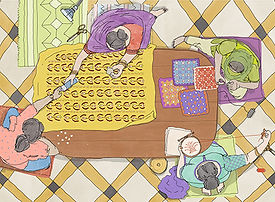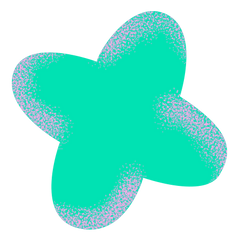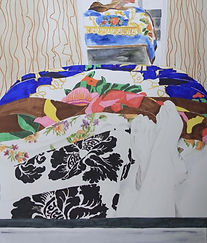Narrative Revolution Fellowship
Creativity lies at the heart of how girls and young feminists organise and transform the world. For many, it is the direct use of art in their activism – using poetry, graphics, illustration, murals, graffiti, music, spoken word and other artistic forms of expression to agitate, protest, reimagine and show the world what is possible. Art emerges as a tool for political awakening and education, healing, resistance, hope and beyond.









THE FELLOWSHIP IS DEDICATED TO CENTERING, SUPPORTING, AND AMPLIFYING THE EXPERIENCES, WISDOM, STRATEGIES, AND DREAMS OF GIRLS AND YOUNG FEMINIST ARTISTS AND ACTIVISTS USING ART TO TRANSFORM THE WORLD.
Serving as a community-centric and creative incubator, the fellowship is a program that brings together 9 girls and young feminist artists and activists from across movements and regions to explore: What would the world look like, feel like, sound like if it supported the dreams, power, and resistance of girls and young feminists?
Fellows receive a $3,000 award to support their participation in the program along with strategic support for community learning and building that includes peer creative coaching, advisors, and more.







